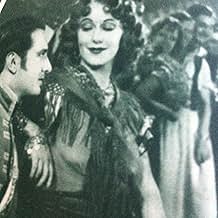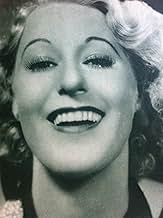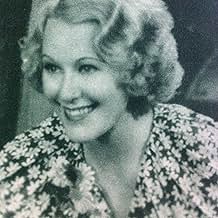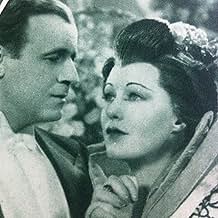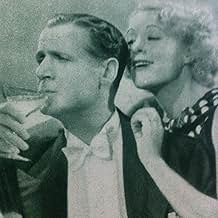Mary, an aspiring opera singer, trains under famed maestro Guilio Monterverdi. Their professional relationship turns romantic amid hard work and clashes, but jealousy and misunderstandings h... Read allMary, an aspiring opera singer, trains under famed maestro Guilio Monterverdi. Their professional relationship turns romantic amid hard work and clashes, but jealousy and misunderstandings hinder their love's expression.Mary, an aspiring opera singer, trains under famed maestro Guilio Monterverdi. Their professional relationship turns romantic amid hard work and clashes, but jealousy and misunderstandings hinder their love's expression.
- Won 2 Oscars
- 5 wins & 4 nominations total
- Galuppi
- (as Andres De Segurola)
- Bartender
- (uncredited)
- Undetermined Role
- (uncredited)
- Children's Music Teacher
- (uncredited)
- Radio Judge
- (uncredited)
- Cafe Owner
- (uncredited)
- Minor Role
- (uncredited)
- Stage Manager
- (uncredited)
- Vegetable Man
- (uncredited)
- Undetermined Role
- (uncredited)
Featured reviews
This delightful musical was a huge success - the operatic selections are wonderful, as is the title song, which was a big recording success for Moore. Moore's voice is absolutely beautiful. Female singers were trained a little differently in those days, often backing off of their high notes. Moore does a little of that but has a glorious extension above high C. Her best singing is in her rendition of "One Night of Love"; unfortunately, the opera selections sung by "Maria Barrett" were vocally wrong for this charming lyric coloratura. Moore herself has a nice warm presence on screen, though I read once that she had an unfortunate resemblance to the comedienne Joan Davis. From certain angles, that is true, but she was photographed carefully and looks lovely throughout the movie, slender and beautiful. Due to marrying a Frenchman and living part-time in France, working at her opera career, concertizing and eventually entertaining the troops, Moore only made 9 films. She died in a plane crash in 1947 at 49 years of age.
The opera selections were, as always, on the strange side. Only in Hollywood would a lyric coloratura with a weak lower register and no chest voice sing Carmen! From the sound, female singers also were not taught to do a mix on the lower notes. The role for Moore in Carmen is Micaela, which is indeed the role she played. Surprisingly, she also in real life did Tosca and Butterfly, which must have been total disasters. Her Butterfly, the finale of the film, is not good, particularly at the end. Her voice just isn't powerful enough, nor should it be - she wasn't a spinto or dramatic soprano or even a big lyric! The voice suffers, occasionally falling out of placement in the middle range. "Sempre Libera" was a series of wrong and skipped notes. And she scooped like crazy. This is nitpicking, but I would have preferred to hear some "La Boheme," Mimi being her Metropolitan Opera debut, or the Jewel Song from Faust, or Micaela's aria, all of which suited her voice perfectly, and all of which she sang during her career.
If you love opera, you'll love "One Night of Love" for its glorious music and the elegantly-voiced Grace Moore.
The rejected woman re-enters the picture and handsome Lyle Talbot (as Bill Houston) is also around. He would like to marry Moore. All of this fluff is meant to showcase Moore, who acquits herself well after some less than blockbuster films for MGM. Moore received an "Oscar" nomination for her starring role. The "Academy" and "New York Times" also lauded co-star Carminati and director Victor Schertzinger. Moore's closing number is a highlight.
***** One Night of Love (9/5/34) Victor Schertzinger ~ Grace Moore, Tullio Carminati, Lyle Talbot, Mona Barrie
At the time, Grace Moore got all the attention, as much for her shapely figure and for stepping down from her Metropolitan Opera pedestal as for her actual performance. Playing a soprano who spends her savings to study with a famous maestro in Italy, the 33 year-old Moore seems a bit of a late starter, but bounces around with lots of vivacity. Singing the title song and the inevitable "Ciri-Biri-Bin", she mostly avoids the pearls-before-swine tone of opera singers when they stoop to popular song, although she still sashays [especially as Carmen] and waves her arms too much for modern tastes.
Many decades later, it is clear that much of the charm was supplied by Tullio Carminati, an appealing comic actor with a wry quality, something like an Italian Walter Matthau. As Moore's mentor/romantic interest, he has a kind of offhand sophistication and the expert timing to support Moore's occasionally shaky line readings [of course, she's the one who got the Oscar nomination].
Director Victor Schertzinger soft-pedals the high culture, and manages several Lubitsch/Mamoulian moments: one amusing conceit has a building full of musicians all practicing different instruments in discord, until Moore unites the tunes with her impromptu rendition of "Sempre Libre" from LA TRAVIATA. Another enjoyable sequence presents singing a quartet from LUCIA as a strategy to avoid paying the rent. When the plot enters the tiresome misunderstandings phase, Schertzinger keeps the pace going until the finale, a staging of a scene from MADAME BUTTERFLY.
Throughout, Joseph Walker, Columbia's maestro of camerawork, softly lights Moore to utmost advantage, and even gets in a couple of zoom shots [in 1934!]
Whereas in 'Jenny Lind' (or 'A Lady's Morals') and 'New Moon' she had bigger name stars like Wallace Beery and Lawrence Tibbett (much more of a fan of the latter though, can take or leave Beery as an actor whereas Tibbett was, and still is, an operatic giant as well as a remarkably vivid actor) alongside her, and more leading lady status than the "star". Here however, she is the star in the first of five films she made with Columbia (her previous two films being with MGM), and it is one of her better, a contender for the best even, collaborations with the studio.
There is not much to complain about here, at least to me. Then again it is highly dependent on whether it is your sort of film. The start of the film is not as clever or as exuberant as the rest, setting the tone for a very typical, clichéd want-of-stardom/back-stage drama film. There are also parts where lip-synching is sloppy, particularly in "Un Bel Di Vedremo". However, there is so much to recommend about 'One Night of Love'. The story easily could have been contrived, paper thin and overly-typical with the numerous misunderstandings in danger of over-complicating the drama, but while there is not much originality it is executed with such light-footed aplomb and exuberance and the misunderstandings so wittily written that what could have been a huge problem was not problem.
Not only that, but as a singer myself it was easy to relate to Moore's character Mary's goals and trials and there is so much truth to what is shown in the film (the wants to make something out of what you love and the trials involved as well as the rewards), which also has a very autobiographical and personal feel. The opera world is not glamorised or trivialised like it could have been, it is shown as rewarding and glitzy but it is also shown that what seems so idyllic on stage and on record is not so idealistically glamorous, it's hugely competitive and often stressful.
Visually, 'One Night of Love' is a lavish-looking film, beautifully shot and designed with sheer elegance and class. The music, done during a period where opera was used extensively in film to make it more accessible to a wider audience, is magnificent, not just the timeless operatic standards such as "Habanera" from 'Carmen', "Sempre Libera" for 'La Traviata', the sextet from 'Lucia Di Lammermoor' and "Un Bel Di Vedremo" from 'Madama Butterfly' but also the title song and "Ciriciribin". The writing sparkles from bubbles on top of a champagne glass, and Schertzinger's direction is a marvel. Narratively, highlights are the scene with the musical instruments playing and Mary starts to sing as a result and the triumphant and moving finale (a character overcoming the odds is not new territory but still it's very well done here).
Moore dazzles as Mary and it is easy to see how she was made a movie star (sadly though a short-lived one on film, and in real life), her singing is wonderful -if a little over-parted in "Sempre Libera", which didn't strike me as the sort of aria that seemed completely right for her voice- and she is an expertly comedienne too. Tullio Carminatti is also ideally cast, bringing wry humour and charm, while Jessie Ralph is particularly excellent in support.
All in all, notable for making a movie star out of Grace Moore in her third film (though first time as star rather than leading lady) but also a vastly entertaining and well-made film in its own right. 8/10 Bethany Cox
Did you know
- TriviaThis was the first film to win an Academy Award for Best Music Score (for Louis Silvers) as 1934 was the first year that an Oscar for this category was introduced.
- Quotes
Mary Barrett: I have $500 of my own. I'm taking that money and I'm going to Italy to study!
Mr. Barrett - Mary's Father: Italy?
Mary Barrett: Yes!
Mrs. Barrett - Mary's Mother: Why, that place is full of Italians!
- ConnectionsFeatured in The Soundman (1950)
- SoundtracksOne Night of Love
(1934) (uncredited)
Music by Victor Schertzinger
Lyrics by Gus Kahn
Sung by Grace Moore at a radio contest
Partially sung a cappella by Tullio Carminati twice
Played often in the score
- How long is One Night of Love?Powered by Alexa
Details
- Runtime1 hour 24 minutes
- Color
- Aspect ratio
- 1.37 : 1
Contribute to this page


